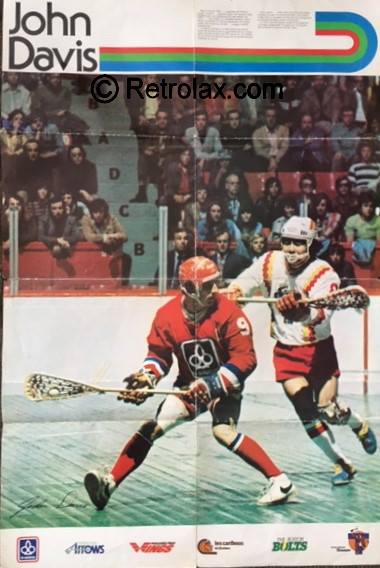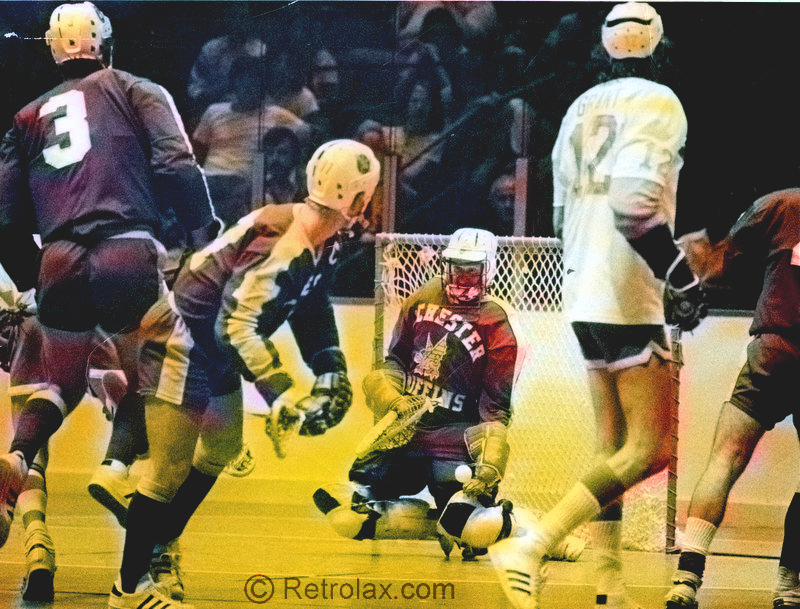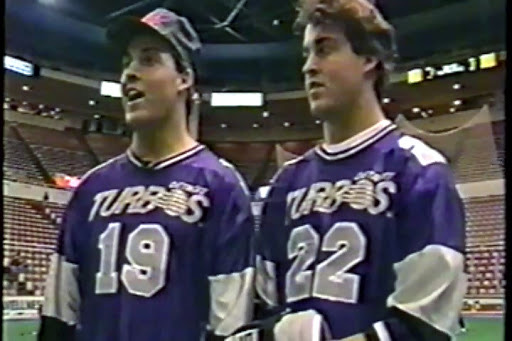

You don’t really need an excuse for visiting Philadelphia but Arnold London had one anyhow. He went to the City Of Brotherly Love to watch a mugging.
It happened on May 19, 1974 when the Philadelphia Flyers bullied their way to the Stanley Cup over the Bruins. London, a Boston C.P.A., guest of Flyer president Ed Snider with whom he had worked in , launching the then woeful Flyer franchise. Snider wanted London in on the kill. He also wanted London to talk with Philly builder-developer Ed Tepper about something Snider said was “very exciting”. namely, professional box lacrosse.
London, deciding that what he didn’t know about box lacrosse was probably well worth knowing, brought along Jim Herscot. a Lowell businessman and former Harvard lacrosse captain.
After watching the Flyers dispatch the Bruins. London and Herscot stayed around for a few hours for the National Lacrosse League opener the Philadelphia Wings and Montreal Quebecois. They got an eyeful — Herscot went bonkers over the game, London liked watching 13.”) customers click through the Spectrum turnstiles. They decided Snider was right, Tepper was right. the NLL was right, and the time was right to bring the sport to Boston.
London and began negotiations with then League commissioner Jim Bishop. Several Summer
meetings proved fruitless — “we were miles apart,” — and the effort almost died, says Herscot.
Negotiations moved on into the fall with the differences gradually narrowing until, in November, the London-Herscot team seemed to be getting somewhere with new league commissioner Gerry Patterson.
The bid for a new franchise was shaping up as a tug of war between Boston and a group from Indianapolis for the rights to the Rochester franchise. London and Herscot met with league officials in December and were offered an expansion franchise, rather than one Of the existing ones. ‘ ‘We gave them a flat no’,” Herscot says.
It looked as though Boston’s chances for pro box lacrosse were nil until a mid-December meeting, when London, Herscot and the NLL finally agreed on a complicated cross transaction. Boston received the Rochester franchise rights. However, the players were already committed to play for Bruce Norris’s relocated franchise, the Long Island Tomahawks. Norris had transferred his franchise rights from Toronto to Long Island and then brought Rochester players and coach Morley Kells down to Long Island as a unit.
The net result was that Rochester had franchise rights and no players, Toronto had players and no franchise rights. Thus, Boston acquired a) the Rochester rights, and b) the Toronto players.
The papers were signed in January and, in February, London and Herscot decided On the nickname. “Bolts” and hired former Toronto assistant general manager Bob Hanna as the club’s managing Hanna handled the selection of the 21 players chosen by the Bolts in the February player draft.
In March the team named former Philadelphia forward Larry Ferguson as coach and, on April 1,
training camp for 42 players at Peterborough. Ontario. The Bolts, London and Herscot’s excuse for a visit to Philadelphia. arrived in Boston April 10 for a 28- game home slate at the Garden.
Lacrosse was off and running in Boston.






